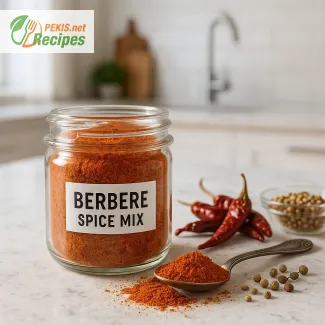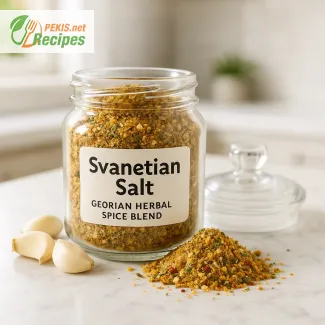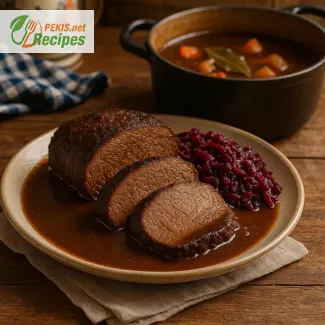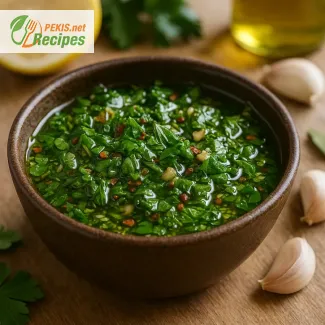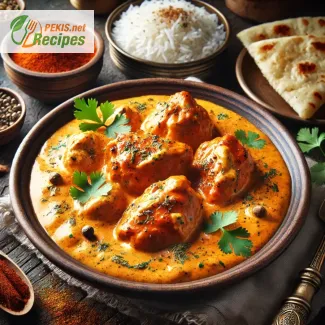
Chicken Tikka Masala with Coconut Sauce is a delightful fusion of Indian-inspired flavors and creamy coconut richness, bringing an exotic touch to the dinner table. This dish, known for its tender pieces of marinated chicken cooked to perfection, is enveloped in a vibrant orange sauce enriched by coconut milk that melds a depth of flavor with gentle sweetness. Traditionally served with steamed basmati rice or warm naan bread, this version of tikka masala is unique in that it blends the spiciness of Indian cuisine with the tropical essence of coconut, offering a velvety texture and a complex taste profile that is both comforting and intriguing.
At the heart of this dish lies the marinated chicken, where the right blend of spices is essential for creating that authentic tikka flavor. Typically, chunks of chicken breast or thigh are marinated for hours, or even overnight, in a mixture of yogurt, ginger, garlic, and an array of fragrant spices, such as turmeric, garam masala, coriander, and cumin. This marinade not only enhances the chicken's tenderness but also infuses it with a rich aroma that becomes more pronounced after cooking. Once marinated, the chicken is traditionally grilled or broiled to achieve a slightly charred exterior, which adds a smoky undertone that contrasts beautifully with the creamy coconut sauce.
The coconut sauce is where this recipe truly shines. Unlike the classic heavy cream base often found in traditional chicken tikka masala, coconut milk provides a lighter alternative that doesn’t compromise on creaminess. The sauce begins with a sauté of finely chopped onions, garlic, and ginger in a bit of oil or butter, allowing the base flavors to develop fully. To this, a medley of spices—such as ground coriander, cumin, paprika, and fenugreek—is added, blooming in the oil to release their full flavor potential. Finally, coconut milk is poured in, giving the sauce its signature silky texture, subtle sweetness, and mild tropical flavor. The sauce is simmered until it reaches the perfect thickness, then combined with the grilled chicken, allowing the flavors to meld beautifully.
Preparation Tips and Storage
For the best flavor, prepare the marinated chicken a day in advance, allowing the spices to penetrate deeply and enhance the taste. The sauce itself can also be made ahead of time and stored in the refrigerator for up to two days. When it comes to serving, reheat the dish gently on low heat, stirring occasionally to maintain the sauce's smooth consistency.
After serving, any leftovers should be cooled to room temperature before being placed in an airtight container. Chicken Tikka Masala with Coconut Sauce keeps well in the refrigerator for up to 3 days and can even be frozen for longer storage. If freezing, consider storing in portion-sized containers for easy reheating, and thaw in the refrigerator overnight before gently reheating on the stove.
This dish is a perfect make-ahead option, whether for a cozy family meal or a gathering with friends. Its vibrant colors and aromatic spices create a dish that not only pleases the palate but also elevates the dining experience.
Step 1: Marinate the Chicken
- In a mixing bowl, combine yogurt, lemon juice, turmeric, cumin, coriander, cinnamon, salt, garam masala, garlic, and ginger. Mix well until smooth.
- Add the chicken pieces to the marinade, coating each piece thoroughly.
- Cover the bowl and refrigerate for at least 2 hours (overnight recommended) to allow the chicken to absorb the flavors.
Step 2: Prepare the Sauce Base
- In a large saucepan, heat the vegetable oil or ghee over medium heat.
- Add the chopped onions and sauté until golden brown (about 8-10 minutes).
- Add garlic and ginger, cooking for another 1-2 minutes until fragrant.
- Sprinkle in the ground coriander, cumin, paprika, chili powder, and garam masala. Stir well, letting the spices bloom for about 1 minute to release their aroma.
Step 3: Cook the Sauce
- Add the chopped tomatoes to the pan, stirring until they soften and blend with the spices, about 5 minutes.
- Pour in the coconut milk and add salt. Stir thoroughly until the sauce is smooth.
- Lower the heat to a simmer and cook the sauce for 10-15 minutes, allowing it to thicken.
Step 4: Cook the Chicken
- While the sauce is simmering, preheat the grill or a large skillet over medium-high heat.
- If using a skillet, add a small amount of oil and cook the marinated chicken in batches, about 4-5 minutes per side, until browned. The chicken should be mostly cooked through.
- If using a grill, thread the chicken pieces onto skewers and grill for 4-5 minutes on each side, until charred and cooked through.
Step 5: Combine Chicken and Sauce
- Add the cooked chicken pieces to the sauce, stirring to coat well.
- Simmer the combined mixture for an additional 10 minutes on low heat, allowing the flavors to meld.
Step 6: Serve
- Garnish with freshly chopped coriander (cilantro) and serve hot with basmati rice or naan bread.
This Chicken Tikka Masala with Coconut Sauce can be prepared in advance. The marinated chicken and sauce can both be stored separately in the refrigerator for up to 24 hours before cooking. Reheat the assembled dish gently on low heat, and any leftovers can be stored in an airtight container in the fridge for up to 3 days or frozen for up to 2 months. For a perfectly fresh taste upon reheating, add a dash of water or coconut milk to keep the sauce creamy and vibrant.
Nutritional Impact and Health Benefits of Chicken Tikka Masala with Coconut Sauce
Chicken Tikka Masala with Coconut Sauce is a nutrient-rich dish that offers a harmonious blend of proteins, essential fats, and vitamins essential for supporting various bodily functions. The ingredients in this recipe, from the protein-packed chicken to the spice-rich marinade and coconut-based sauce, provide a balanced intake of nutrients that contribute positively to our health. Here’s a detailed breakdown of how the ingredients affect our bodies, with special emphasis on vitamins.
1. Protein-Rich Chicken
Chicken, particularly when skinless, is an excellent source of lean protein with a relatively low-fat content. The protein in chicken helps with:
- Muscle Repair and Growth: Proteins are the building blocks for muscle tissues, supporting recovery and strengthening, which is essential for anyone active or aiming to build strength.
- Metabolic Health: Protein intake supports metabolic processes, helping the body utilize energy effectively, which is important for maintaining a healthy weight.
Chicken is also rich in Vitamin B6 (pyridoxine), which assists in:
- Energy Production: Vitamin B6 helps metabolize proteins, carbohydrates, and fats, ensuring your body utilizes food efficiently.
- Cognitive Health: Vitamin B6 supports brain function by aiding in neurotransmitter synthesis, contributing to better mood regulation and focus.
2. Coconut Milk
Coconut milk, a staple in this sauce, provides healthy fats primarily in the form of medium-chain triglycerides (MCTs), which offer:
- Energy Boost: MCTs are quickly absorbed and used by the body for immediate energy, making them beneficial for sustained energy without causing spikes in blood sugar.
- Heart Health: Though coconut milk contains saturated fats, some research suggests that the specific type found in coconuts may support cholesterol balance, promoting cardiovascular health.
Coconut milk also contains Vitamin C, which contributes to:
- Immune Function: This antioxidant protects the body against infections and oxidative stress, bolstering immune defenses.
- Skin Health: Vitamin C supports collagen production, enhancing skin elasticity and contributing to overall skin health.
3. Spices
Spices like turmeric, cumin, coriander, and ginger are more than just flavor enhancers; they bring a host of health benefits.
- Turmeric (Curcumin): Known for its anti-inflammatory and antioxidant properties, curcumin can help reduce inflammation and oxidative stress in the body. Chronic inflammation is linked to conditions like heart disease, diabetes, and arthritis, so anti-inflammatory spices play a role in prevention.
- Cumin: Rich in iron, cumin aids in oxygen transportation in the blood, which is essential for energy and endurance. It also supports digestion by enhancing enzyme activity, which can ease bloating and discomfort.
- Coriander: This spice contains Vitamin K, which is vital for bone health and blood clotting. Vitamin K helps the body produce proteins needed for bone mineralization and is essential for individuals aiming to maintain bone density and reduce fracture risk.
- Ginger: Recognized for its digestive benefits, ginger can relieve nausea, reduce bloating, and promote overall gut health. It’s also an anti-inflammatory, contributing to reduced joint pain and improved immune response.
4. Garlic and Onions
These ingredients belong to the allium family, which are renowned for their bioactive compounds with numerous health benefits.
- Heart Health: Compounds in garlic, like allicin, have been shown to help regulate blood pressure and cholesterol levels, reducing the risk of cardiovascular diseases.
- Immune Support: Onions and garlic contain Vitamin C and selenium, both of which support the immune system by reducing oxidative stress and promoting healthy white blood cell function.
5. Tomatoes
Tomatoes contribute Vitamin C, Vitamin A, and potassium to the dish, along with lycopene, a powerful antioxidant.
- Antioxidant Protection: Lycopene is linked to reduced risks of cancer, particularly prostate cancer, due to its role in neutralizing free radicals.
- Eye Health: Vitamin A found in tomatoes supports healthy vision, aiding in the prevention of age-related macular degeneration and maintaining night vision.
- Heart Health: Potassium helps regulate blood pressure by balancing sodium levels, which is crucial for reducing cardiovascular strain.
How Often Should This Dish Be Included in the Diet?
Given its nutrient profile, Chicken Tikka Masala with Coconut Sauce can be included in the diet once or twice a week, particularly as part of a balanced menu that includes vegetables, whole grains, and other protein sources. Here are some key considerations:
- Balance Saturated Fat: Coconut milk contains saturated fat, so balancing this dish with meals that have unsaturated fats (like nuts, seeds, olive oil) throughout the week is advisable.
- Protein Diversity: While chicken is a great lean protein, alternating with other sources like fish, legumes, or plant-based proteins will ensure a more varied nutrient intake.
- Spice Variety: The spices in this dish can boost immune health, support anti-inflammatory processes, and promote metabolic health, making this a healthful addition to weekly meals.
Additional Health and Preparation Tips
- Adjusting for Sodium: To reduce sodium, use low-sodium versions of canned tomatoes or control the added salt carefully, especially if served with sides like naan or rice which may also contain salt.
- Balancing Heat and Flavor: For a milder version, reduce or omit the chili powder. Increasing turmeric and ginger adds depth without heat, allowing this dish to suit a wider range of palates.
- Portion Control and Storage: Given the dish’s richness, serve moderate portions. Leftovers can be stored in the fridge for up to 3 days, and reheated with a little added water or coconut milk to maintain the sauce's creamy consistency.
- Enhancing Fiber Content: Serve with whole-grain basmati rice or add a side of steamed vegetables to increase fiber, supporting digestive health and helping to stabilize blood sugar levels.
- Ingredient Substitutions: For those with lactose intolerance, ensure yogurt substitutes are available. Coconut yogurt is an excellent alternative for the marinade, keeping the recipe dairy-free while still yielding a rich, tender chicken.
This Chicken Tikka Masala with Coconut Sauce is a flavorful, nutrient-dense addition to the diet when consumed in moderation. Its rich combination of spices, vitamins, and essential nutrients makes it more than just a comfort meal—it’s a healthful way to enjoy global flavors with benefits to muscle health, immunity, and digestion. With mindful ingredient adjustments and occasional servings, this dish can be a regular, enjoyable part of a balanced, health-conscious menu.
- Contains dairy (from yogurt).
- Contains coconut.
Allergy-Friendly Substitution Tips
- Dairy-Free Alternative: Substitute plain yogurt with a dairy-free yogurt made from coconut or almond milk for marinating the chicken, ensuring the flavor remains mild.
- Coconut-Free Option: Replace coconut milk with almond or cashew cream for a similarly creamy texture, though the flavor profile will change slightly.
